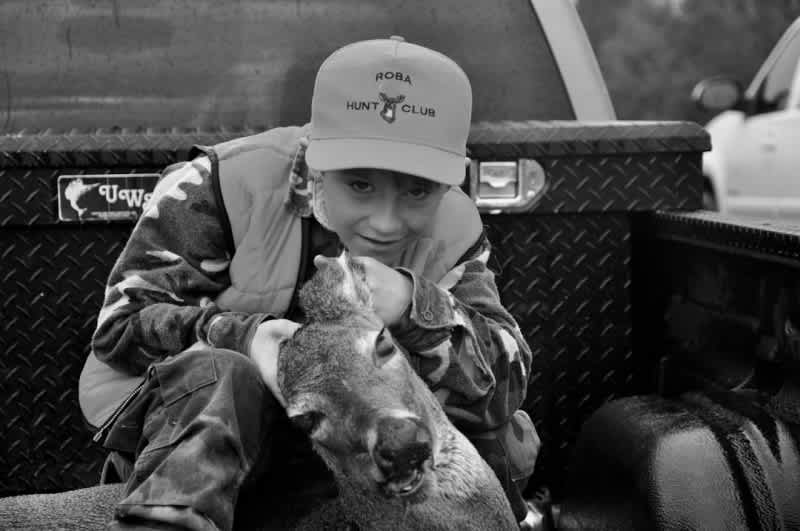Foster the Outdoors
Josh Wolfe 05.12.14

You’re probably wondering right off what the photograph has to do with the title of this article. How can a young boy holding the ears of a dead doe have anything to do with conservation and preservation? And to be honest, I think many of you reading this probably already know the answer. But for those who don’t, I’m going to give this explanation my best shot.
You see, the boy holding that dead deer is one of the few youngsters I’ve ever watched grow into his own as an outdoorsman. It’s been from a distance, mind you, but his father and my own are good friends and his brothers and I grew up hunting, fishing, exploring, fighting, sneaking out, you name it—the things that boys will do. Conveniently named Hunter, he was fortunate, as was I, to grow up in a family full of sportsmen that saw to his education as a conservationist.
Far too often I read another article or blog about the anti-hunters and the steps they’re taking to steal our rights and our heritage. A mind-boggling realization came to light just recently: anti-hunters are now spending their money to draw tags out West, so that actual hunters have less of a chance at obtaining a license to hunt elk, moose, and deer. I also feel that too frequently we cut a wide berth around the gritty part of what it actually means to be a conservationist. Again, hence the photograph.
I have fond memories of attending Ducks Unlimited banquets as a young boy, probably not much older than Hunter was at the time I took this photo. His three brothers were always there, as were some other friends and boy, did we have a time. Back then I never understood the point of these gatherings, but I knew they were important to my father so it had to be the right thing to do. As I grew older I came to understand and appreciate the message, and attending those early events helped build a good foundation.
I’m no intellectual when it comes to anything. I’m only trying to relay what I’ve learned: if we don’t start getting more youngsters involved in our traditions, then we ultimately lose. Too many ruts lie in the road ahead to not be proactive about fostering the outdoors. Outdoorsmen and women are the ones who fund organizations like Ducks Unlimited, which works to preserve habitat that is quietly dying by the day. We keep herds from overpopulating, destroying the land and themselves.
I challenge anyone who reads this (there’s got to be two or three of you for sure) to make an attempt to get one young boy or girl into the outdoors within the year. Summer is perfect when kids are out of school and fishing opportunities are abundant. If you work in the outdoor industry, consider joining organizations like the Southeastern Outdoor Press Association (SEOPA) or the Professional Outdoor Media Association (POMA), where great strides are being taken to mentor young writers, photographers, and communicators. Even students who think they might want to pursue a career in this business are encouraged to join at virtually no cost to them.
If you’re wondering, that doe Hunter holds was killed on our farm in southern Tennessee, the same place that Arthur Farrell continues to learn in the schoolhouse without walls. Hunter sat with his father on a cold rainy morning the way so many of us have done before. My first deer came in the late afternoon heat of South Texas where we sat overlooking a long scendaro. I can still hear the rattle of the spent cartridge ejected from dad’s old Winchester Woodmaster as it bounced off the tin floor, smell the sweetness of gunpowder, and feel the pure elation of a young boy who’d just accomplished something special—becoming a hunter.
So what is a hunter worth? What would happen to all of the hardwoods of our childhood springs and falls? The waters of adolescence where you found love and a 10-pound largemouth from the same boat in the same pristine little cove? Because it’s those memories, the ones you can’t find at the grocery store, that are priceless. Pass them on.

